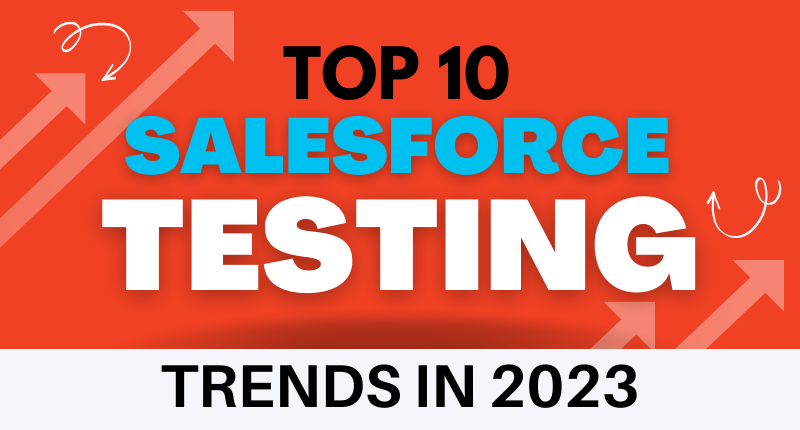Salesforce has become an indispensable tool for businesses worldwide, serving as the leading Customer Relationship Management (CRM) platform. Its powerful capabilities enable organizations to streamline sales, marketing, and customer service operations, empowering them to deliver exceptional customer experiences. As the reliance on Salesforce continues to grow, so does the need for robust testing practices to maintain its stability, security, and functionality.
As we venture into the year 2023, the Salesforce ecosystem is evolving rapidly, and with it comes a wave of exciting testing trends that promise to reshape the way organizations validate and optimize their Salesforce implementations. From advancements in automation to a heightened focus on security and compliance, the landscape of Salesforce testing is undergoing a significant transformation.
This blog explores the top 10 Salesforce testing trends that are set to shape the year 2023 and beyond. These trends are driven by the ever-increasing demand for faster, more reliable Salesforce solutions that can adapt to dynamic business needs and provide unparalleled user experiences. With each trend, businesses will find new opportunities to strengthen their Salesforce strategies, bolster their application quality, and stay ahead of the competition.
The critical role of Salesforce testing cannot be overstated. Rigorous testing is essential to identify and rectify potential issues before they impact end-users, ensuring a smooth and seamless Salesforce experience. The trends discussed here aim to address the challenges posed by the evolving Salesforce landscape, empowering organizations to optimize their CRM investments and achieve higher levels of success.
Let’s delve into the top 10 Salesforce testing trends of 2023, where innovative technologies and methodologies come together to revolutionize how businesses approach testing within their Salesforce environments. By staying informed about these trends, businesses can position themselves to harness the full potential of Salesforce while delivering unmatched value to their customers and stakeholders.
1. AI-Driven Testing Automation
In 2023, Artificial Intelligence (AI) and Machine Learning (ML) will play a significant role in automating various aspects of Salesforce testing. AI-driven testing tools will be capable of analyzing complex Salesforce configurations, identifying potential issues, and generating automated test scripts, significantly reducing manual efforts and accelerating testing cycles.
2. DevOps Integration for Continuous Testing
The integration of Salesforce testing into the DevOps pipeline will gain momentum in 2023. With Continuous Integration and Continuous Deployment (CI/CD) becoming the norm, organizations will embrace continuous testing practices to ensure seamless delivery of Salesforce updates and enhancements.
3. Comprehensive Security Testing
As data breaches and cyber threats continue to be major concerns, comprehensive security testing will be a top priority in 2023. Organizations will focus on conducting rigorous security assessments to identify vulnerabilities in their Salesforce applications and protect sensitive customer data.
4. Performance Testing for Scalability
With the growing number of Salesforce users, the demand for scalable applications will surge in 2023. Performance testing will be crucial to assess the platform’s ability to handle increasing user loads, ensuring smooth user experiences during peak times.
5. Mobile Testing for Enhanced User Experience
Salesforce mobile applications will witness increased adoption in 2023, making mobile testing an essential aspect of the testing strategy. Ensuring the responsiveness and compatibility of Salesforce applications across various mobile devices and operating systems will be a top priority.
6. Lightning Web Component Testing
Salesforce’s Lightning Web Components (LWC) are gaining popularity for building modern and efficient user interfaces. In 2023, developers and testers will focus on LWC testing to ensure seamless integration and functionality within Salesforce applications.
7. Shift-Left Testing Approach
To detect and fix issues early in the development lifecycle, organizations will adopt a shift-left testing approach in 2023. Testers will collaborate with developers from the initial stages, resulting in faster bug identification and resolution.
8. Multi-Cloud Testing
As companies utilize multiple Salesforce instances and integrate with various cloud-based services, multi-cloud testing will become crucial in 2023. Ensuring the seamless functioning of Salesforce applications across different cloud environments will be a challenge testers need to address.
9. Data Integrity and Migration Testing
With Salesforce serving as the repository for critical customer data, data integrity and migration testing will be essential in 2023. Ensuring the accuracy and completeness of data during migration processes will guarantee a smooth transition without data loss.
10. Compliance Testing
In 2023, companies operating in regulated industries will prioritize compliance testing. Ensuring that Salesforce applications adhere to industry-specific regulations and standards will be vital to avoid legal and financial repercussions.
Conclusion
The year 2023 is poised to be an exciting time for Salesforce testing, as emerging trends promise to revolutionize the testing landscape. From AI-driven automation to comprehensive security assessments, organizations will focus on delivering high-quality Salesforce applications that meet user expectations and comply with industry standards. Embracing these top 10 Salesforce testing trends will empower businesses to leverage the full potential of Salesforce while ensuring a seamless and satisfying user experience.




